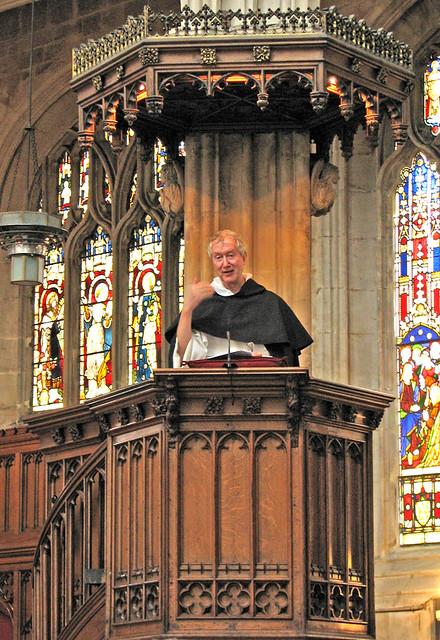I’m in a unique ministry context. My job involves regularly inviting guests to preach for our Sunday morning worship services. We welcome guest preachers about two times a month, or nearly half the Sundays in the year. Over the years I have observed preachers as they bring a word from the Lord to our people. Often these preachers have come with what may be considered a “prophetic word” (i.e., a hard, justice-oriented truth) from the Lord.
Over the years I have also observed the way our worshiping community has responded to these preachers and the requisite ministry within the community that has followed. In doing this, I’ve recognized some postures prophetic preachers have assumed that have enabled them to be heard and heeded by our people in a way that leads to more faithful discipleship by our people. Perhaps sharing these will help guide your preparation the next time you’re invited to be a preacher, or a prophet, in another pastor’s hometown.
Posture of a pastor
The role of a prophet or a prophetic preacher is not about pursuing praise from or providing comfort to people, especially when preaching to those who are already too comfortable in a world as broken and unjust as ours. Yet when you are proclaiming a word of challenge or provocation to the people of God, doing so from a pastoral posture is often more effective and perhaps also more faithful than preaching without this posture.
Do not misunderstand, emphasizing the pastoral does not mean one should avoid speaking the hard truth or calling people to turn from the ways of sin and death that destroy themselves, their neighbors, and the creation around them. Neither does emphasizing the pastoral mean your message won’t provoke anger, frustration, annoyance, challenge, repentance, disruption, or conviction in the people. Prophetic preaching grounded in the pastoral will surely do all of these things from time to time.
Rather, emphasizing the pastoral means remembering that ultimately the hope is to lead or guide the people into the ways that lead to life. And while the worshiping community to whom you are preaching may not be those you’re called to shepherd regularly, they are ultimately sheep of the Good Shepherd whom another is called to tend. Leading God’s people in the way of Christ surely involves rebuke and correction, but it is always for good and not for destruction. To proclaim the truth is prophetic. To proclaim the truth in love is the prophetic grounded in the pastoral.
Posture of a builder
This may be too basic of a point, but I’ll risk the reminder. The people you are preaching to are also part of Christ’s church. Remembering that building up the church through teaching and training is an integral aspect of the ministry of preaching. Of course, in order to build, sometimes things that are present have to be removed or destroyed. Yet how that demolition is done matters greatly.
As an example, there is a significant difference between dropping a bomb on a building and a controlled demolition of a building. Both have the effect of bringing down the structure. Yet, one is done with destructive intent; the other is for the purpose of rebuilding or making way for new creation. Clearing the building is done in both cases. Yet, with one the destruction leaves a large mess and often has collateral damage; with the other the destruction is targeted, and a space is cleared to build up.
As a guest preacher, controlled demolition is always better than dropping a bomb and walking away.
Posture of a sibling
A second basic reminder is this: the people to whom you are preaching are your siblings in Christ and not your enemies. Remembering this will go a long way in helping you proclaim the word of the Lord, so it can be heard and heeded. To illustrate the difference between how you approach an enemy and a sibling, consider the difference between getting people to their knees by a sweep kick and getting them there by kneeling beside them and pressing on the back of their knees. With one you go low as you swipe the worshiper off her feet in order to bring her down, yet you stay on your feet. With the other you begin by kneeling — a posture of prayer and humility — as you encourage the worshiper to join you in kneeling by pushing on the place that motivates the movement.
Both are effective in bringing those who are listening low, but sweep kicks rarely promote postures of prayer and repentance among the people. Pressing the back of someone’s knee is what you do to your own; a sweep kick is what you do to an enemy. As a prophetic preacher, begin on your knees, and press on your siblings to join you there.
These postures can be summed up in this: Let love motivate your prophetic preaching. If you do this, you will:
- come as a pastor, even to those who are not regularly your flock;
- come as a builder, even when you need to tear down to make room for what needs built; and
- come as a sibling, even when you need to help your sisters and brothers fall on their knees before God.

